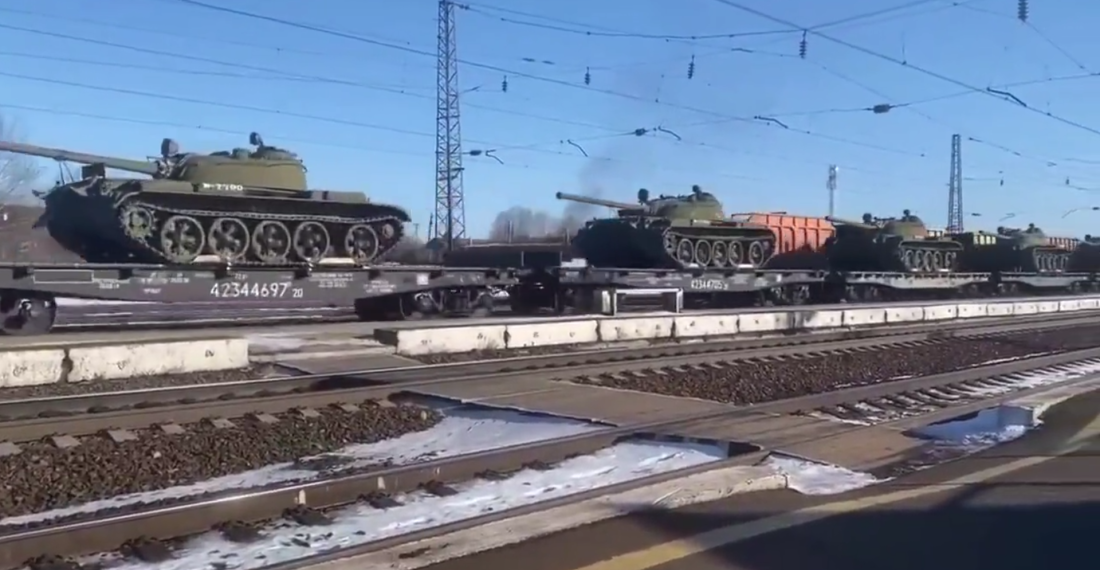Open source intelligence (OSINT) groups are reporting that Russia has begun to deploy Stalin-era tanks to Ukraine after reportedly suffering "significant armoured vehicle losses".
After receiving photographs of a train transporting tanks in Russia's Far East to the west, the Georgia-based OSINT group Conflict Intelligence Team has identified them as T-54 and T-55 tanks. Although Russia's use of the later T-62 tank has been previously reported, this is the first recorded instance of Russia deploying even older tanks, they report.
The earliest T-54 series tanks were adopted by the Soviet Army back in the mid-to-late 1940s, while the T-55 series entered service in 1958.
In their daily update on the Russia-Ukraine war on Wednesday (22 March), the Institute for the Study of War (ISW) said that, "Russian armored vehicle losses are currently constraining the Russian military’s ability to conduct effective mechanized maneuver warfare in stalling offensives in Ukraine."
They added that Russia "may be deploying T-54/55 tanks from storage to Ukraine to augment these offensive operations and prepare for anticipated mechanized Ukrainian counteroffensives."
According to the ISW, the Soviet Union produced tens of thousands of T-54/55 tanks and Russia could be turning to extensive Soviet reserves of these tanks to solve "significant armored vehicle shortages".
While deploying these 70-year-old tanks would certainly bolster numbers, the ISW also writes that their use "may prompt a further degradation of Russian manpower in Ukraine", because the loss of one tank also means the loss of the tank crew, which typically numbers four people.
Despite other previously-deployed models having been retrofitted with more contemporary technology, according to the Dutch OSINT organisation Oryx Russia has had almost 2,000 confirmed tank losses since 24 February last year.






